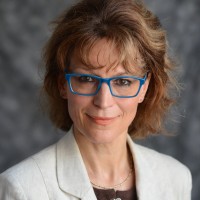Ladies and gentlemen, dear friends, colleagues, dear Hatice,
The last prize this evening is a prize for courage.
Courage…
We are celebrating a virtue – that is acquired. Courage is not innate or inherent. We are not born courageous. We become courageous; or some of us do. As a result of circumstances. But also as a chosen path. Some of us make the choice to be courageous when many others choose to turn away, turn around, look away, ignore or stay silent.
Jamal Khashoggi, the unassuming, polite, kind and curious man. He chose to be courageous. A journalist, high-profile, well respected intellectual in his home country Saudi Arabia, he was well connected with establishment figures. At various points in his career, close even to the Saudi administration and to the Saudi Royal Court. Circumstances did not force him to be courageous; he actively chose to be courageous. In 2013 he had watched, followed closely, the Arab Spring – the revolt of populations against the autocrats, dictators; against their corruption, their injustice. When he then confronted another wave of personal attacks – the cancellation of his column in Saudi newspaper al-Hayat, banned from writing, appearing on television, and attending conferences – in 2017, he chose to leave – not to run – but as he explained in his first piece for the Washington Post because he could no longer be silent!
He left in order to speak out. He chose self-imposed exile over an authority-imposed silence.
Some choose to be courageous – to overcome fear, to risk danger and to face suffering. Jamal Khashoggi did just that. In leaving, he lost his wife who was forced to divorce him; he lost access to his children, some of whom were then subjected a travel ban. Many in his extended family and friendship network turned their backs on him.
He lost status. Income. Possessions. Security. In exile, he found little income. No personal security. He experienced loneliness and deep sadness. And still he turned down invitations to return to Saudi Arabia; refused the money, the job offers, the promises of high status. Instead, he chose to speak out. And to write. And to demand. Then too he chose to be courageous when many others turned away, looked away, stayed silent.
Jamal Khashoggi dared to dream; to dream of dignity for his people, for his country, for his region. He dreamed of a platform for Arab voices – the creation of an independent international forum, isolated from the influence of nationalist governments spreading hate through propaganda. With his newly found friends, he planned new projects to counter State propaganda on-line; he imagined means of expanding democracy in the Middle East.
Philosophers tell us that true courage is put to the service of others, without self-interest, is guided by a sense of justice. To be courageous, truly, is to do what is right.
Jamal, the unassuming, polite, kind journalist – close to the political system of Saudi Arabia – chose justice over his personal interests. He chose democracy and freedom for the people of the Middle East over his status and security. And for that he became one of those whom the Saudi regime sought to silence.
On October 2nd, he was murdered. Lured into the Saudi Arabia consulate on false pretense, on his own, armed only with his pen, his kindness and his politeness, Jamal was confronted by Saudi officials, part of a killing team of 15. They strangled and asphyxiated him. They dismembered him. They then disposed of his body. A killing for which the State of Saudi Arabia is responsible.
Friends, this is a prize for courage – Jamal’s courage. Understanding what is right but opting to not do right – that is just the opposite of courage. And we have seen so much of it, the opposite of courage – in the aftermath of Jamal Khashoggi’s killing. So by celebrating Jamal’s courage, we are denouncing too its very opposite; we reject the complicity, the silence, the apologists, the eagerness to move on, that has been exhibited by so many powerful actors. We reject the despicable self-interest that is driving so many to trample on values, valor and justice.
By celebrating Jamal’s courage, we denounce not only the actors in his murder but the cowards that have failed to act in its aftermath. And we stand with Jamal against them – as we stand with the people of Lebanon and Iraq, Bahrain and Egypt, who are daring to dream, daring to act on their dreams – demanding an end to the hatred, the propaganda, and corruption. Who are calling for justice.
And in honoring Jamal’s courage, we also celebrate Hatice’s courage. Jamal dreamed also a new life. With his Hatice, his soulmate, companion, soon to be wife, they together had dared dream of a new life together.
Tonight, we also celebrate Hatice – for her courage – the courage of those left behind and who continue the fight for justice. Whose voice and acts ensure we do not forget. That we remember.
And that we continue to fight for what is right.

